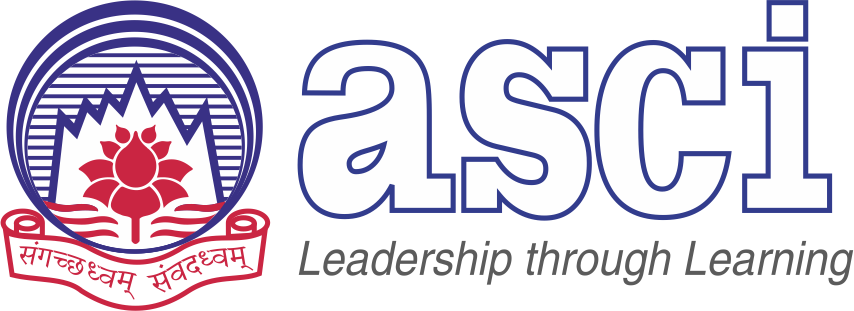Leading Strategic Innovation – Programme Overview
In today's rapidly evolving economic landscape, the ability to understand, interpret, and leverage financial information is an indispensable skill for leaders, policymakers, and decision-makers across all sectors—particularly those in non-financial roles. For government officials, robust financial acumen ensures efficient resource allocation, fiscal responsibility, and enhanced accountability. For executives in financial institutions, it bolsters strategic planning, regulatory compliance, and risk management.
The Finance for Non-Finance Professionals programme is expertly crafted to address this knowledge gap, equipping participants with essential analytical tools and conceptual frameworks to decipher complex financial data and convert it into actionable strategies. Combining theoretical foundations, real-world case studies, and interactive simulations, this programme demystifies financial concepts, transforming abstract figures into practical instruments for informed decision-making.
Participants will delve into key domains such as financial statement analysis, infrastructure project evaluation, capital budgeting, cost analysis, project financing, taxation, and forensic financial practices. By the programme's end, attendees will possess the confidence to evaluate fiscal impacts, substantiate policy choices, and contribute more effectively to organizational growth and governance. This is not just a training initiative; it is a strategic capacity-building endeavour that fosters financial fluency for professionals in diverse operational and policy environments.
Aligned with the Karmayogi competencies in Citizen Centricity, Financial Management, and Office Management, this programme empowers non-finance executives to navigate financial jargon, analyze data, and apply insights to drive organizational success, profitability, liquidity, and long-term sustainability.
IMPACT
Upon completion of this programme, participants will be able to:
Interpret financial statements, including the Statement of Profit and Loss, Balance Sheet, and Cash Flow Statement, to derive insights for policy and operational decisions.
Apply project evaluation techniques to assess the viability, risks, and returns of infrastructure, public sector, and institutional initiatives.
Utilize capital budgeting tools, such as Net Present Value (NPV), Internal Rate of Return (IRR), and Payback Period, for informed investment decisions.
Enhance decision-making through cost analysis, activity-based costing, and metrics for value creation.
Incorporate forensic finance principles to detect, prevent, and mitigate financial irregularities, thereby protecting institutional integrity.
Understand and apply direct and indirect taxation concepts for improved fiscal planning and compliance.
Implement management planning and control systems to align resources with organizational objectives.
Translate financial insights into strategic actions for policy formulation, governance enhancements, and institutional fortification.
Recognize the linkage between shareholder value creation and strategic business choices.
CONTENT
Day I: Foundations of Financial Understanding
Participants will be introduced to fundamental financial concepts and their strategic relevance in contemporary business contexts. Sessions will clarify key terminology and elucidate the metrics that underpin managerial decisions, emphasizing how financial data informs operational and strategic priorities. Through focused modules on Evaluating Financial Performance, attendees will master analytical frameworks and apply them to real-life case studies for interpreting performance indicators.
Day II: Evaluating Projects and Strategic Financial Planning
This day explores Understanding Infrastructure Project Evaluation, including methodologies for assessing large-scale, long-term ventures. Participants will examine Capital Budgeting Decisions, employing techniques like NPV, IRR, and Payback Period to appraise investment opportunities. A dedicated case study on Evaluating and Financing Infrastructure Projects will cover funding mechanisms, cost-benefit analyses, and risk assessments. The session concludes with Management Planning and Control Systems, providing tools to synchronize resources, monitor progress, and attain organizational milestones.
Day III: Costing, Value Creation, and Appraisal
Commencing with Cost Analysis for Decision Making, this day dissects fixed, variable, and incremental costs to guide managerial strategies. Participants will investigate Shareholder Value Creation and its ties to profitability, sustainability, and long-term planning. A practical Project Appraisal Case Study will offer hands-on experience in evaluating project feasibility, incorporating financial, operational, and risk dimensions.
Day IV: Financing and Forensic Insights
Dedicated to Project Financing, sessions will review debt, equity, and hybrid instruments, alongside strategies for structuring funds across project types. The module on Forensic Concepts in Finance will equip participants to identify, prevent, and investigate financial discrepancies—vital for resource protection. Additional emphasis will be placed on leveraging financial data for planning, budgeting, and forecasting to underpin strategic initiatives.
Day V: Taxation and Advanced Costing
Attendees will acquire a comprehensive understanding of Direct Taxation and Indirect Taxation, including their effects on corporate and managerial decisions. An interactive Activity-Based Costing Case Study will illustrate precise cost allocation to products, services, or departments, optimizing pricing and profitability. The programme culminates in integrated exercises, feedback sessions, and discussions to reinforce practical application in professional settings.
FACULTY AND METHODOLOGY
Under the leadership of Dr. Mohammed Mujahed Ali, who brings over 19 years of expertise in blending academic rigour with practical application, the programme features a distinguished faculty. Dr. Ali holds a Ph.D. in Business Management, along with an M.Phil., MBA, and M.Com. As a SEBI-recognized Securities Market Trainer and resource person for NISM and NSE, he has delivered more than 250 workshops and training programmes. His pedagogy integrates engaging classroom discussions, case-based learning, and experiential exercises.
Complementing Dr. Ali are renowned practitioners and industry experts who provide real-world perspectives. The methodology emphasizes dynamic, immersive learning through practical simulations, group activities, and hands-on tools, ensuring participants gain actionable skills to elevate their financial proficiency and influence organizational outcomes.
PARTICIPANT PROFILE
This programme is designed for junior, middle, and senior-level executives from government ministries and departments (Finance, Commerce, Industry, Planning, Energy, Infrastructure, Transport, Railways, Defence, Rural & Urban Development, Agriculture, Fisheries, Health, Education, Labour & Employment, Women & Child Development, Tourism, Environment & Forests, and allied sectors), regulatory and policy institutions (RBI, SEBI, IRDAI, PFRDA, NABARD, SIDBI, EXIM Bank, state financial corporations, and development boards), Public Sector Undertakings (oil & gas, power, mining, steel, shipping, ports, railways manufacturing, telecom, engineering, and infrastructure), State and Central Public Enterprises (CPSEs & SLPEs), public and private sector banks, financial institutions, local governments, municipal bodies, and sector-specific organizations in healthcare, education, agriculture, manufacturing, logistics, tourism, IT & telecom, renewable energy, infrastructure, defence manufacturing, and the social sector. It is equally relevant for non-finance professionals in strategic roles such as operations, administration, HR, procurement, legal, project management, and policy implementation, particularly those involved in planning, budgeting, evaluation, and monitoring of projects where financial literacy enhances efficiency, transparency, and accountability.
VENUE
The programme is fully residential and the participants will be accommodated in air conditioned single occupancy rooms. The college does not provide accommodation for the family. The college is Wi-Fi enabled in a comprehensive way.
DURATION
The programme duration is 5 days starting from November 24-28, 2025. The participants are expected to arrive a day before commencement and may leave after the conclusion of the programme.
PROGRAMME FEE
Residential Fee: Rs. 69,500/- (US $ 1086 for foreigners) plus GST as applicable (presently 18%) per participant. The fee covers tuition, board and lodging, courseware (in electronic form) and other facilities of the College including internet usage.
Non-Residential Fee: Rs. 59,500/- plus GST as applicable (presently 18%) per participant. The fee covers tuition, course ware (in electronic form) working lunch and other facilities of the College including internet usage.
A discount of 10% on the Programme fee for three or more participants from the same organisation will be given, provided the payment is credited into our Bank account before November 21, 2025.
Note: Kindly forward us the details of the Bank/ Wire transfer of the programme fee through email to: [email protected] for confirmation.
MEDICAL INSURANCE
The nominees are requested to carry with them the proof of Medical Insurance. The sponsoring agency is required to endorse the nominees' medical coverage in the event of hospitalization
LAST DATE FOR NOMINATION
Please use the prescribed/attached form. Last date for receiving nominations is November 17, 2025. Kindly contact Programmes Officer for further details (contact details are given at the end of the nomination form).
LAST DATE FOR WITHDRAWAL
November 19, 2025. Any withdrawals after this date will entail forfeiture of fee paid, if any.
ASCI ALUMNI ASSOCIATION
Participants of the College programmes will automatically become members of the ASCI alumni association.
CERTIFICATE OF PARTICIPATION
The College issues a Certificate of Participation on conclusion of the programme.

